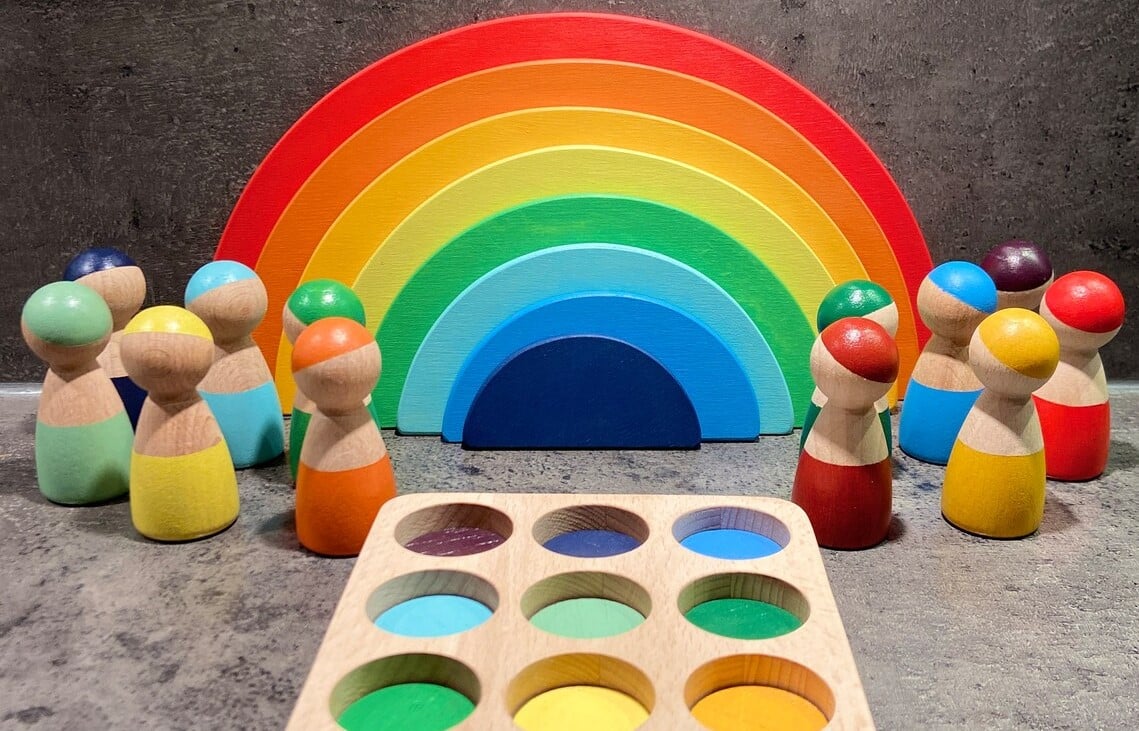Toys are an important aspect of children’s lives, providing entertainment, promoting learning, and stimulating creativity. Among the many types of toys available, colorful wooden toys have gained popularity in recent years due to their aesthetic appeal and numerous benefits for children’s cognitive, physical, and emotional-social development.
Cognitive Development
Colorful wooden toys have a significant impact on children’s cognitive development. They provide various textures, shapes, and colors that can engage children’s senses and stimulate their brains. Interacting with these toys can help children identify colors, shapes, and patterns, which enhances their visual and spatial skills. Additionally, building and stacking wooden blocks can develop problem-solving and critical thinking skills as children figure out how to fit the pieces together.
Playing with colorful wooden toys can also improve children’s language skills. They may engage in imaginative play and storytelling, which can help expand their vocabulary and communication abilities. Furthermore, wooden puzzles and matching games can enhance children’s memory and concentration skills.
Physical (Motor) Development
Colorful wooden toys can also benefit children’s physical development, particularly their motor skills. These toys are usually more substantial than plastic toys, which helps children develop fine motor skills as they manipulate the pieces. For example, playing with wooden blocks can improve children’s hand-eye coordination, dexterity, and grip strength.
Moreover, wooden toys usually require more physical activity, which can develop gross motor skills. Wooden ride-on toys or push toys can enhance children’s balance, coordination, and physical strength. As children engage in physical play with wooden toys, they can improve their overall health and well-being.
Emotional-Social Development
Finally, colorful wooden toys can promote children’s emotional-social development. Playing with these toys can help children develop social skills, such as sharing, taking turns, and cooperating with others. As they engage in imaginative play, children learn to express their emotions and develop empathy for others. Additionally, wooden toys have a timeless quality that can create a sense of comfort and security for children, especially during stressful or transitional times.
Conclusion
In conclusion, colorful wooden toys have a considerable impact on children’s cognitive, physical, and emotional-social development. These toys provide a range of textures, shapes, and colors that engage children’s senses and stimulate their brains. Additionally, wooden toys can develop fine and gross motor skills, promote physical activity, and improve overall health and well-being. Playing with wooden toys can also help children develop social skills, emotional intelligence, and a sense of security. When choosing toys for your child, consider investing in colorful wooden toys to enhance their development and well-being.

